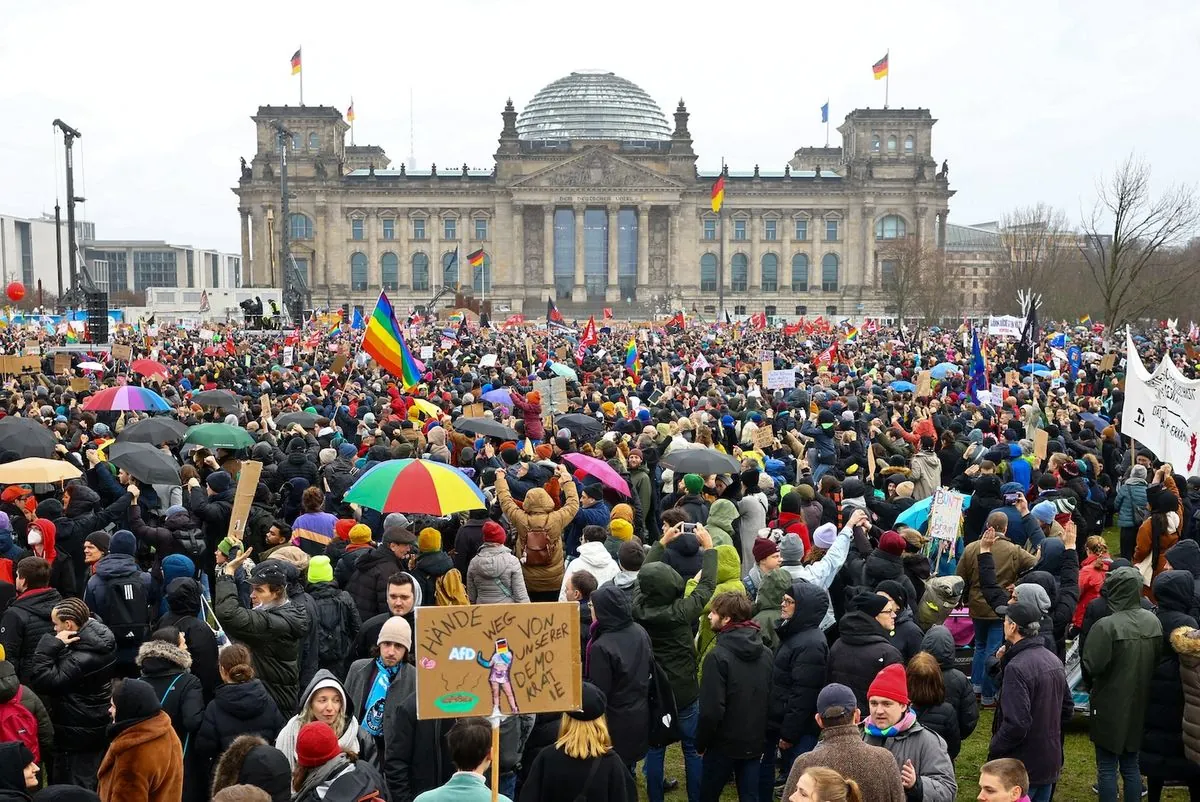Far-Right Surge in German Elections Raises Concerns for European Stability
Recent state elections in Germany see far-right party gains, coinciding with historical anniversary. This shift threatens support for Ukraine and NATO, potentially reshaping European geopolitics.

On September 1, 2024, Germany witnessed a significant political shift as the Alternative for Germany (AfD) secured victories in the eastern states of Thuringia and Saxony. This event coincided with the 85th anniversary of the Nazi invasion of Poland, raising concerns about the resurgence of far-right ideologies in the country.
The rise of the AfD, founded in 2013, along with the growing popularity of Sahra Wagenknecht's left-wing party, has sparked debates about the stability of Germany's democratic institutions. These developments are particularly noteworthy given Germany's post-World War II commitment to liberal democracy and its role in European affairs.

Both extremist parties share pro-Russian sentiments and express skepticism towards Ukraine, NATO, and the United States. This alignment echoes historical parallels, reminiscent of the 1939 Molotov-Ribbentrop Pact between Nazi Germany and the Soviet Union, which led to the partition of Poland.
The electoral success of these parties is expected to influence Germany's foreign policy, particularly its support for Ukraine in the ongoing conflict with Russia. The current German government, led by Chancellor Olaf Scholz, is already planning to reduce aid to Ukraine significantly by 2025, with further cuts projected for 2027.
"The CDU is a vassal of the US."
This shift in German politics could have far-reaching consequences for European security and NATO's cohesion. While countries like Poland and the Baltic states, which joined NATO in 1999 and 2004 respectively, are increasing their defense spending, other European nations remain hesitant to commit more resources to military preparedness.
The situation in Germany is further complicated by the upcoming U.S. presidential election in November 2024. The potential return of Donald Trump to the White House could significantly impact transatlantic relations and NATO's future.
In the UK, Sir Keir Starmer, leader of the Labour Party since 2020, may need to reassess his approach to bilateral relations with Germany. The current talks between Starmer and Scholz might lose relevance if the Christian Democratic Union (CDU), led by Friedrich Merz since 2022, comes to power in the anticipated 2025 federal elections.
As Germany grapples with these political changes, questions arise about its future role in Western civilization. The country's reunification in 1990, following the fall of the Berlin Wall in 1989, marked a new era of engagement with Western allies. However, the current political landscape suggests a potential shift in Germany's international stance.
The emergence of this new "German Question" highlights the ongoing challenges in maintaining European unity and transatlantic cooperation in the face of rising populism and changing geopolitical dynamics.


































